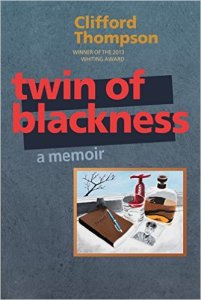 Clifford Thompson grew up in the post-civil rights era in a black neighborhood in Washington, D.C., raised by an extended, loving church-going family who made sure he made it to college.
Clifford Thompson grew up in the post-civil rights era in a black neighborhood in Washington, D.C., raised by an extended, loving church-going family who made sure he made it to college.
I grew up in the post-civil rights era too, but in a white Kansas City suburb. My parents were loving church-going people who also steered me towards college.
Thompson grooved to the Jackson 5, Fifth Dimension, the Spinners, the Ohio Players, and the Temptations. He watched Mary Tyler Moore, Flip Wilson Show, Good Times and The Jeffersons.
I watched those shows too and listened to Motown, swooned to Smokey Robinson, and gyrated to Sly and the Family Stone. So for a microsecond I believe Thompson and I had more or less same childhood.
It’s his mention of All in the Family that shakes me back to reality. His family laughed at Archie Bunker—an old-fashioned white bigoted working-class guy. My father laughed with Archie, his hero, the paradigm of working class guys like him who spoke bluntly (if not ignorantly) about race, ethnicity, and gender.
For forty years, I believed Dad was the only father in America who couldn’t see that Archie was the butt of the show’s humor. However, Thompson tells us that CBS received many letters “praising the network for finally airing a show about their kind of guy.”
Clearly Thompson and I didn’t have the same childhood, though we both grew up when pop culture crossed racial lines and prompted much-needed public debates.
Twin of Blackness refers to Thompson’s own “blackness,” which he regards as a twin of himself that he loves and defends, yet resents its “baggage.” He discovers it’s not “enough to be black, or white, or Asian, or Hispanic, or Native American, or Jewish, or whatever: you had to act the part….”
When Thompson leaves his insular Lincoln Heights neighborhood, he enters Oberlin College, where he is one of only three blacks in his dorm. In a conversation with a white girl, she tells him she’s never heard of James Brown. Stunned, Thompson thinks back to his old neighborhood where such a remark would have been like saying, “I’ve never heard of George Washington.”
Conversely at a get-acquainted party, Thompson is supposed to guess the author’s name taped to his back. After numerous tries, he gives up. It’s C.S. Lewis, author of the Narnia Chronicles.
It’s no wonder, Thompson decides later, he hasn’t heard of Lewis. When he looks up his books, he decides they’re “the kind of reading done in neighborhoods where kids routinely picked up books for fun, where no one asked, while looking at you as if you had an ear growing out of your forehead, ‘Why you read?’”
Thompson’s Oberlin classmates turn out to be friendly and inclusive, but college is an academic and cultural awakening. He survives through humor, resiliency, and determination. After graduation, he becomes an editor at Doubleday, where he not only meets famous authors, but works with Jacqueline Kennedy Onassis. When he loses his job, due to a massive layoff, Jackie O soothes him by kissing his forehead, which he regards as a sign that everything will turn out okay. Mostly it does.
Terry McMillen accepts his short story for an anthology, Breaking Ice. He lives for a while in Italy, becomes editor of Current Biography, and publishes a novel. “Blackness” doesn’t dictate his life, but it triggers uncomfortable assumptions and expectations. For instance at Doubleday, his colleagues practically insist he date the black girl in the office. He’s baffled, wondering if his co-workers are so naïve to think that because two African-Americans work in the same office, they should date and marry. Thompson dates white women, which causes both whites and blacks to raise their eyebrows at him. Thompson says they’d ask, “What it was I had against black women anyway?”
Ultimately, this warm, humorous memoir reminds us that prejudice continues through stereotyping and broad-based assumptions based on race, gender, religion, and ethnicity. It’s only when we’re able to view people as people—not based on baggage they might be carrying—are we able to make progress in building a more peaceful, compassionate society.
__
Debbie Hagan is book reviews editor for Brevity and teaches writing at New Hampshire Institute of Art. Her essays have recently appeared in Brain, Child and the anthology Dime Story.
